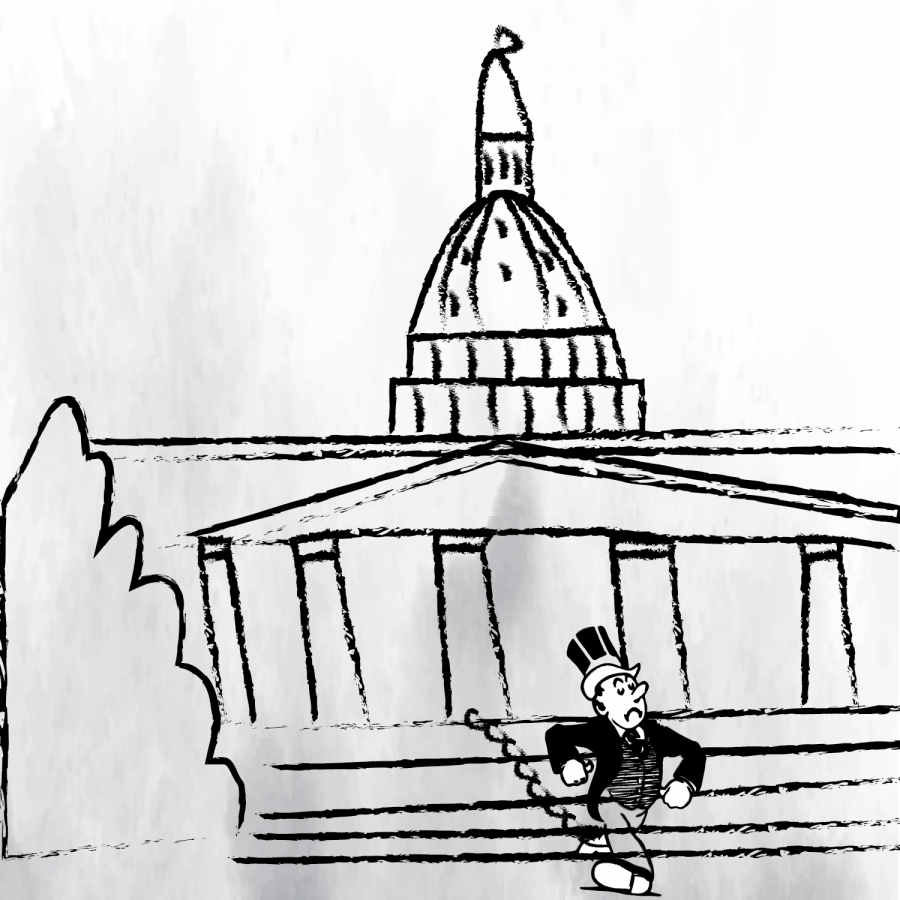Opinion | Wealth tax will present problems constitutionally and economically
December 12, 2019
As Senators Elizabeth Warren and Bernie Sanders continue to vie over the support of the progressive base of the Democrats for the party nomination, one shared policy proposal stands out as particularly problematic: the Wealth Tax.
On the candidates’ websites Warren has referred to her plan as a “Tax on Extreme Wealth” and Sanders has deemed it the “Ultra-Millionaire Tax.” The proposed plans would both place a progressive tax on the net worth of households.
Warren’s plan would place an “annual 2% tax on every dollar of net worth above $50 million and a 6% tax on every dollar of net worth above $1 billion.” Sanders’ alternatively would place “a 1% tax on net worth above $32 million” going up to “8% on wealth over $10 billion.”
The goal of both plans is to reduce wealth inequality and massively raise government revenue to fund ambitious social welfare plans both candidates have presented alongside the wealth tax.
Such a plan is not only economically disastrous, but it is also immoral and unconstitutional. The impracticability of such taxation schemes is rooted in the steep administration costs and the changing of the incentive structures of the market.
Get The Daily Illini in your inbox!
Legal scholar Richard Epstein notes Warren’s economists seemingly ignore the mountain of administrative costs associated with assessing the value of assets. He estimates “the administrative costs of imposing a 2% wealth tax on persons whose net worth is, say, $55 million would surely surpass the $1,100,000 the tax would generate.”
Government bureaucracy is inefficient. There’s no method by which government taxation will not produce a deadweight loss.
This is where the next issue with the wealth tax lies. The 1% don’t just leave all their capital in a checking account, it’s invested. Their assets are in real estate, stocks, startup-companies, bonds, etc.
When a wealth tax taxes their total net worth, the 1% will be forced to liquidate some of their assets. This is harmful to the economy.
Take Jeff Bezos, founder and CEO of Amazon as an example. According to Forbes, Mr. Bezos is worth $109 billion. Under Warren’s plan, he would have to pay an annual 6% tax on his wealth. This wealth is mainly located in the 12% of Amazon shares he holds.
What will happen when Bezos is forced to liquidate his shares to pay the $6.54 billion in annual wealth taxes Warren proposes? The stock market will become flooded with Amazon stock with no increase in the demand for the stock. The result of this increase in supply is a decrease in Amazon stock price, causing other investors to sell their shares and so on.
This devaluation of the stock market will impact millions of Americans’ retirement investments and decrease the incentive for wealthy households to invest their capital. This will curb economic growth as well as hurt low and middle-income Americans.
A larger concern is that wealthy Americans that would be subject to the wealth tax would just leave the country the minute Warren or Sanders get elected. They have the means of living anywhere in the world they want.
Warren combats this by placing a 40% exit tax on wealth for those who expatriate, but if we create economic conditions where we have to coerce individuals into not fleeing the country by threatening to take nearly half their wealth, we’ve already failed as a nation.
The wealth plan is also flagrantly unconstitutional. Article I, Section 9 enumerates the taxing powers of Congress: “No capitation, or other direct, Tax shall be laid, unless in Proportion to the Census or enumeration herein before directed to be taken.”
Congress has the right to lay down indirect taxes, such as excise and sales taxes. It originally did not have the power to lay direct taxes such as income taxes. This was affirmed in Pollock v. Farmers’ Loan and Trust Company (1895).
Congress only gained the “power to lay and collect taxes on incomes” with the adoption of the 16th Amendment. But a tax on wealth is distinguishably different from an income tax and therefore not protected under the 16th Amendment or Article I, Section 9.
Perhaps more importantly, why does wealth inequality matter? Americans are experiencing the lowest unemployment rate in decades and a booming economy. Jealousy of those more affluent is not an excuse to weaponize taxation. Forced equity is immoral and insensible when the government should prioritize growth that benefits all levels of America.
Matthew is a sophomore in LAS.







